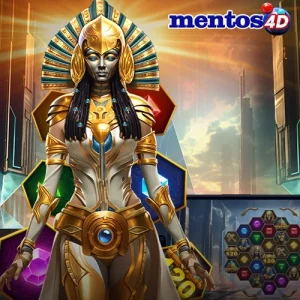In the vast landscape of modern entertainment, online gaming stands as a towering colossus, continuously evolving and shaping the way we interact with technology, each other, and even ourselves. From the humble beginnings of text-based adventures to the sprawling virtual worlds of today, the journey of online gaming is a testament to humanity’s boundless creativity and technological prowess.
A Journey Through Time
Online gaming’s roots trace back to the early days of computer networking, where primitive games like “Spacewar!” and “MUDs” (Multi-User Dungeons) laid the groundwork for what was to come. These pioneers Mentos 4d sparked a revolution, demonstrating the potential of connecting players across vast distances, transcending the limitations of physical proximity.
The 1990s saw the emergence of graphical online experiences with titles like “Ultima Online” and “EverQuest,” introducing millions to the concept of persistent virtual worlds. Players could create avatars, interact with others in real-time, and embark on epic quests together, blurring the lines between reality and fantasy.
As internet infrastructure improved and technology advanced, online gaming flourished. The 2000s witnessed the rise of massively multiplayer online role-playing games (MMORPGs) like “World of Warcraft,” which became cultural phenomena, attracting millions of subscribers and reshaping the gaming industry.
The Dawn of Digital Communities
Beyond mere entertainment, online gaming fostered the creation of vibrant communities. Guilds, clans, and forums became virtual gathering places where players forged friendships, shared strategies, and collaborated towards common goals. These communities transcended geographical boundaries, uniting individuals from diverse backgrounds under a common passion for gaming.
Social platforms integrated within games further enhanced this sense of camaraderie, enabling players to communicate, form groups, and coordinate activities seamlessly. From voice chat to text messaging, these tools transformed online gaming into a social experience akin to gathering with friends in a virtual space.
The Rise of Esports and Competitive Gaming
The 2010s witnessed the meteoric rise of esports, transforming gaming into a global spectator sport. What began as informal competitions among friends evolved into professional leagues and tournaments with millions of dollars in prize money and legions of fans worldwide.
Games like “League of Legends,” “Dota 2,” and “Counter-Strike: Global Offensive” captivated audiences with their fast-paced action and strategic depth, elevating top players to celebrity status and filling stadiums with eager spectators. Esports events became cultural phenomena, attracting mainstream media attention and legitimizing gaming as a legitimate form of entertainment.
The Future of Online Gaming
Looking ahead, the future of online gaming appears boundless. Advancements in technology, such as virtual reality (VR) and augmented reality (AR), promise to revolutionize the gaming experience, transporting players to immersive digital realms beyond their wildest dreams.
Moreover, emerging technologies like blockchain are poised to disrupt traditional gaming models, offering new avenues for ownership, monetization, and player empowerment. Decentralized platforms and non-fungible tokens (NFTs) enable players to truly own their in-game assets, fostering economies where creativity and skill are rewarded.
As we embark on this new frontier, one thing remains certain: online gaming will continue to captivate, inspire, and unite players from around the globe. Whether exploring fantastical worlds, competing for glory, or forging lifelong friendships, the journey through online gaming is a testament to the power of technology to connect us in ways previously unimaginable. So, let us raise our controllers and venture forth into the boundless realms of digital adventure, for the best is yet to come.